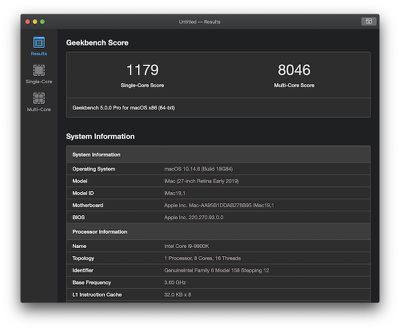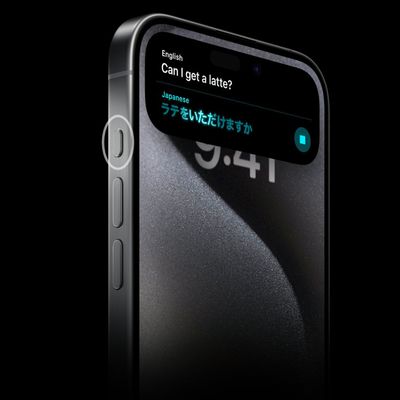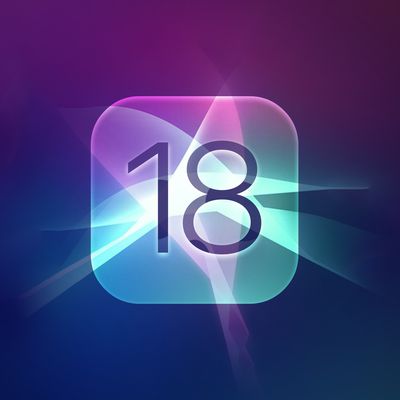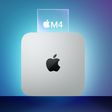Geekbench 5 Released With Improved Benchmark Tests, Dark Mode Support, and More
Primate Labs today announced the release of Geekbench 5, the latest major version of its popular benchmark software.

For CPUs, Geekbench 5 features new benchmark tests and it also increases the memory footprint of existing workloads to more accurately account for the effect memory performance has on CPU performance:
The Geekbench 5 CPU Benchmark includes new benchmark tests that model the challenges your system faces when running the latest applications. These tests use cutting-edge technologies, including machine learning, augmented reality, and computational photography.
Geekbench 5 also increases the memory footprint of existing workloads to more accurately account for the effect memory performance has on CPU performance.
Finally, the Geekbench 5 CPU Benchmark includes new modes of multi-threaded benchmarks, allowing threads to work co-operatively on one problem rather than separately on different problems. With the addition of different threading models, Geekbench 5 better captures the performance of different multi-threaded applications on personal computing devices.
As for GPUs, the Compute benchmark now supports Vulkan in addition to Metal, CUDA, and OpenCL.
Geekbench 5 also has a refreshed user interface with full support for Dark Mode on macOS Mojave and later. Support for Dark Mode on iOS 13 will be available later this year, according to Primate Labs.
Geekbench 5 is available now for macOS, iOS, Windows, and Linux, with an Android version coming later this week. The software is 64-bit only, dropping support for 32-bit processors and operating systems.
Through September 10, Geekbench 5 and Geekbench 5 Pro for Mac are on sale for $7.49 and $49.99 respectively, down from $14.99 and $99.99. Geekbench 5 for iOS is also free until that time, while Geekbench 5 Pro for iOS has introductory pricing of $4.99, which will rise to $9.99 after the sale ends.
Popular Stories
Game emulator apps have come and gone since Apple announced App Store support for them on April 5, but now popular game emulator Delta from developer Riley Testut is available for download. Testut is known as the developer behind GBA4iOS, an open-source emulator that was available for a brief time more than a decade ago. GBA4iOS led to Delta, an emulator that has been available outside of...
The first approved Nintendo Entertainment System (NES) emulator for the iPhone and iPad was made available on the App Store today following Apple's rule change. The emulator is called Bimmy, and it was developed by Tom Salvo. On the App Store, Bimmy is described as a tool for testing and playing public domain/"homebrew" games created for the NES, but the app allows you to load ROMs for any...
Last September, Apple's iPhone 15 Pro models debuted with a new customizable Action button, offering faster access to a handful of functions, as well as the ability to assign Shortcuts. Apple is poised to include the feature on all upcoming iPhone 16 models, so we asked iPhone 15 Pro users what their experience has been with the additional button so far. The Action button replaces the switch ...
A decade ago, developer Riley Testut released the GBA4iOS emulator for iOS, and since it was against the rules at the time, Apple put a stop to downloads. Emulators have been a violation of the App Store rules for years, but that changed on April 5 when Apple suddenly reversed course and said that it was allowing retro game emulators on the App Store. Subscribe to the MacRumors YouTube channel ...
iOS 18 is expected to be the "biggest" update in the iPhone's history. Below, we recap rumored features and changes for the iPhone. iOS 18 is rumored to include new generative AI features for Siri and many apps, and Apple plans to add RCS support to the Messages app for an improved texting experience between iPhones and Android devices. The update is also expected to introduce a more...





















Top Rated Comments
Geekbench 5 scores are calibrated against a baseline score of 1000 (which is the score of an Intel Core i3-8100). Higher scores are better, with double the score indicating double the performance.
I use Geekbench to quickly relate potential performance between machines. For example, I see Apple has a new MacBook Air with a dual-core 1.6GHz 8th generation CPU. Well, how does that compare to my 2012 MacBook Pro with a 2.5GHz quad-core processor. With the Geekbench results, I can get a quick idea of the difference.
Ultimately, however, the individual's use cases have to be called into consideration, because a user with a primary application of Mail.app probably wouldn't see much difference between a dual-core machine and a 20-core machine.
Only BS is your post which shows a complete lack of understanding of "architecture".